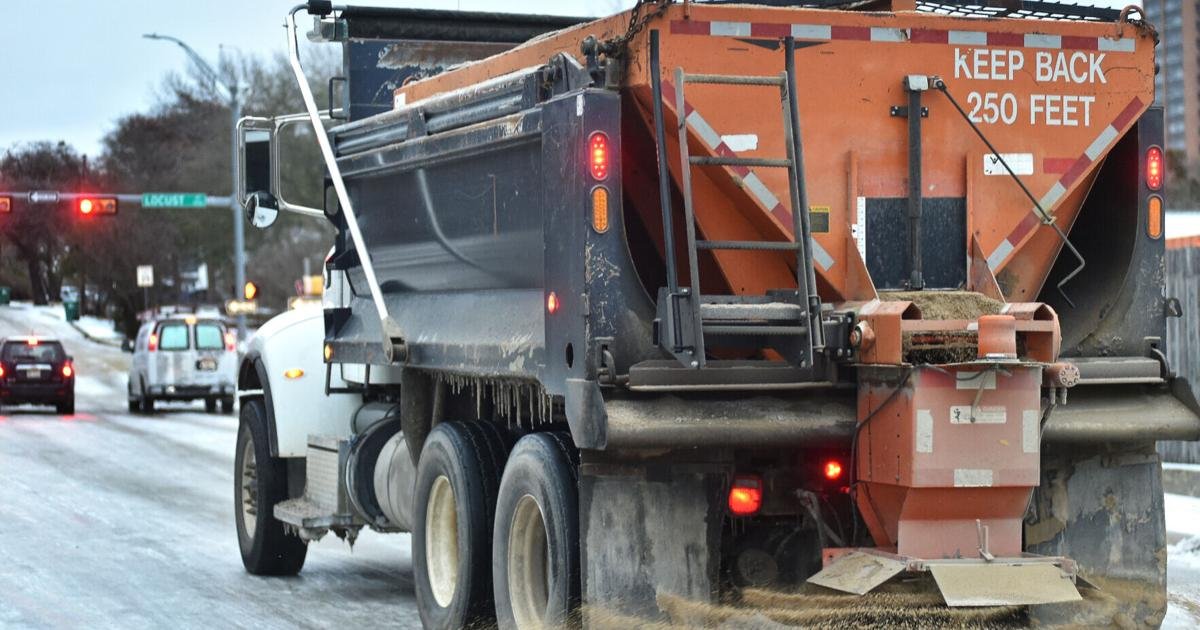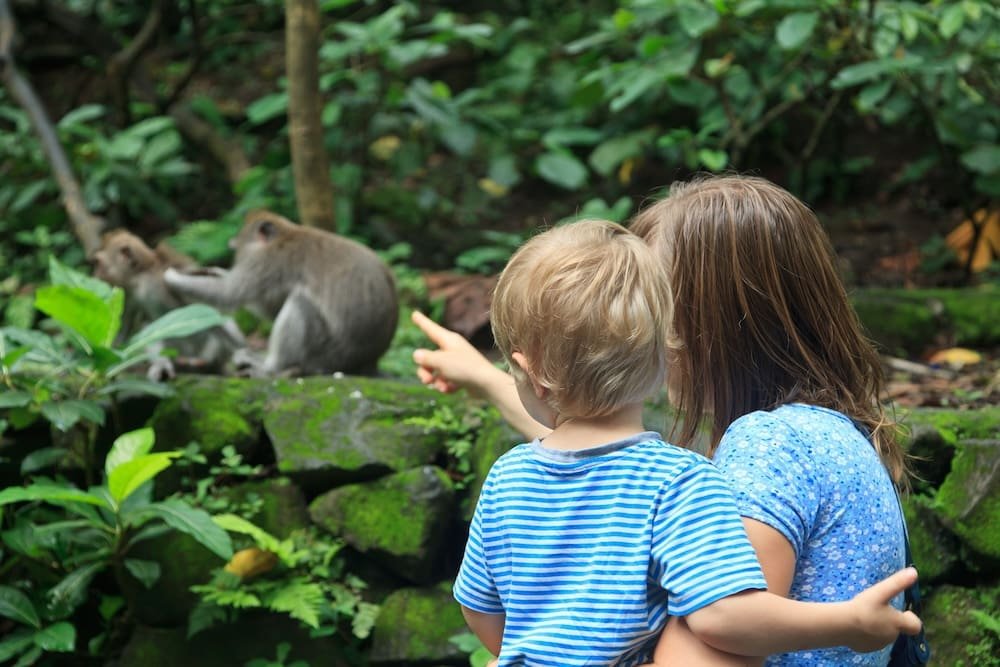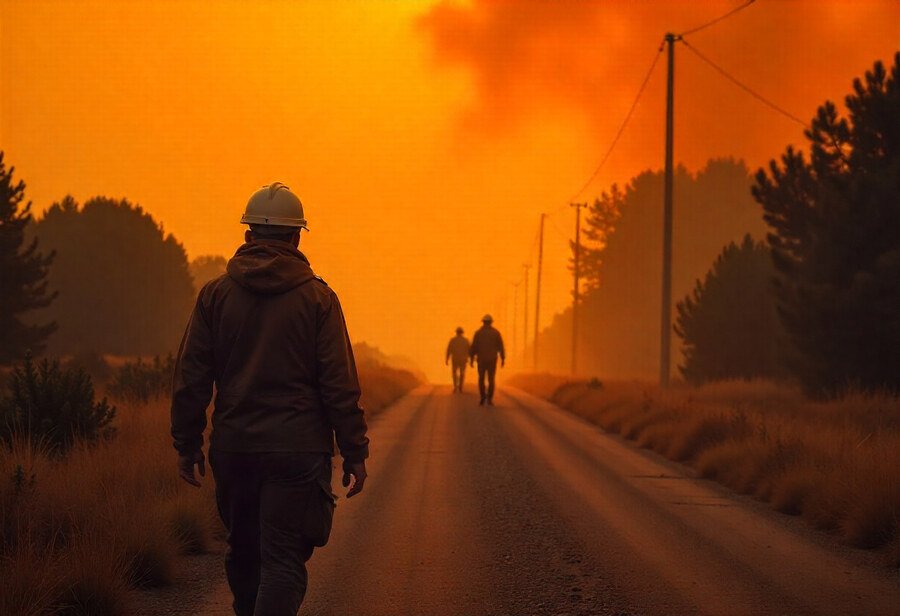Tips & Advices
Winter storm warning in Denton County: Travel safety tips and emergency resources available | Weather – Denton Record-Chronicle

Tips & Advices
Safety Advisory for Indian Nationals in Dublin: Key Tips for Travelers and Precautionary Measures: Know More

Monday, August 4, 2025
As Dublin remains highly popular among Indian citizens, particularly students, professionals, and tourists, it is important to pay attention to travel safety measures. The recent targeting of Indian nationals has caused India’s Embassy in Ireland to issue an advisory warning on 1st of August, 2025, to take extra safety measures while travelling.
The issued advisory in the embassy was done so after a notable increase in subsequent attacks against Indian students and people working in the Dublin area. The number of International Indian students living in Ireland is over 90000 people, which consists of 25000 students, so the safety of the travelling people is highly important.
What’s Happening in Dublin: Recent Safety Concerns
The Indian Embassy in Dublin has issued a warning advising citizens to be especially careful when travelling to Dublin. The alerts have been issued for the Indian population living in Ireland, mostly due to incident s like the one involving Dr. Santosh Yadav, a Dubline based scientist, who was assaulted, and the assault on Indian nationals living and working for Amazon in the country.
The Indian population living in Ireland must be very cautious especially in low populated areas. Above all be very conscious of your surroundings. Although Dublin is one of the most friendly and welcoming cities in the world, one must be very thoughtful in the way, manner, and time while moving around the city.
Guidance for Indian Nationals and Tourists Traveling to Dublin
For the purpose of this blog, we aim to help Indian nationals visiting Dublin, whether for work, study, or leisure, stay safe while traveling. We have compiled a list of practical tips to ensure every traveler’s safety in Dublin.
1. Stay in Well-Populated Areas
When planning your trips or sightseeing around the city, it’s best to remain within the busy and well-lit areas, especially during the evenings. Refrain from solo walking in quiet areas, especially during non-peak hours. In the case that you require movement around the city during late hours, make use of reputable and trusted transport services such as taxi and rideshare companies.
2. Keep Emergency Numbers Handy
Having important emergency contact numbers is essential while travelling. The Indian embassy in Dublin has provided a helpline number for any urgent assistance, which is 0899423734. Keep this number saved in your phone for easy access in case you need help.
If anyone encounters any distressing situations, you can reach out to local law enforcement or the embassy helpline. However, if you are traveling in a group, it is best to inform someone of your location. This is especially important if you are heading out in the late hours.
3. Travel in Groups When Possible
Being around other people enhances safety, especially in new locations. If you are in Dublin for tourism, ensure you are with friends or other travelers, particularly when navigating the city after nightfall. Not only does this lower your chances of running into trouble, but it enhances your ability to get help if something goes wrong.
4. Be Mindful of Your Surroundings
Always stay in tune with your surroundings and your environment. When in public spaces, especially in quieter areas, refrain from looking at your phone or putting on headphones. If things don’t seem right, trust your instinct and take the best course of action, which would be to move toward safer places.
5. Keep Your Embassy Informed
Embassies and consulates keep locals informed when there are safety updates, which is handy for any travelers. For Indian citizens, not missing out on safety updates from the Indian Embassy in Dublin is, in fact, an actively beneficial choice. The embassy keeps an eye on the situation and will keep the people informed.
6. Stay Updated on Local Advisories
Maintaining awareness of pertinent social issues, safety notifications, and travel warnings is often crucial. For example, the safety issues concerning Dublin, which are being updated by the Indian Embassy, are continuously being brought to the notice of the Indian community. Following the Indian Embassy in Dublin on social media, visiting their webpage, and subscribing to their newsletters are ways of obtaining pertinent information.
What to Do If You’re Affected by an Incident
Although safety precautions can reduce the risk of encountering problems, it’s important to know what to do if you find yourself in an unfortunate situation. Here’s a quick guide to help you handle emergencies:
- If you are involved in an incident: First, make sure you are safe. Seek help from local authorities or call emergency services immediately. If necessary, head to the nearest police station or a busy area for safety.
- Contact the embassy: If the situation involves a serious threat or injury, contact the Indian Embassy as soon as possible. They will guide you on the next steps and offer necessary support, whether medical, legal, or consular.
- Notify your contacts: If you’re in a group or traveling alone, let someone know your whereabouts and the situation. It’s always a good idea to keep your family or friends updated in case they need to assist in emergency situations.
Conclusion: Staying Safe While Enjoying Dublin
People around the world continue to visit and work in Dublin for its rich culture and thriving economy. Like in any other country, Dublin, recently, has made some headlines which has raised many eyebrows. However, following the necessary precautions laid out by the legal affiliations can greatly lower the chances of any bad experiences.
As a student, employee, or traveler, Dublin can be extremely enjoyable. Similarly, one simple mistake can land people in big trouble. Staying in touch with their country’s legal affiliations, like the embassies, keeping aid contact numbers, can prove to make the trip, for work or tourism, enjoyable without any hiccups.
Tips & Advices
Travel insurer flags surge in Bali rabies claims as govt issues treatment warning

According to Zoom Travel Insurance, dog bites remain the leading cause of incidents, especially in ‘red zone’ tourist areas like South Kuta and Mengwi District.
Consequently, Bali authorities have ramped up stray dog vaccinations in these areas. However, risks remain for unprepared visitors.
Zoom Marketing Manager Natasha Sullivan says travellers often underestimate the severity of bites and scratches, even minor ones.
“Our team has noticed an increase in Bali claims tied to dog bites and the need for rabies treatment,” she remarked.
“While actual cases of rabies are rare, any stray or wild animal bite requires immediate treatment, given the potentially fatal consequences of an untreated infection.
“Even if the injury is very small, any sort of skin penetration should be considered a rabies risk and must be treated.”
What to do
Specifically, Sullivan says that if you haven’t been vaccinated for rabies and an animal bites you, “you will need a shot within seven days of being bitten.”
“You will then require a follow-up dose on day 3, 7, 14, and 28 after exposure, with the full treatment costing anywhere between $3,000 and $10,000, depending on where you are in the world,” she added.
Complicating matters, rabies treatment can sometimes be costly or more difficult to access in certain countries, especially in rural areas.
“Rabies treatment can be very hard to obtain at some destinations, and in some instances, you may have to fly or travel elsewhere to secure the vaccine,” Sullivan said.
The Department of Foreign Affairs says rabies treatment in Indonesia, including Bali, may be limited.
“The rabies vaccine is not available everywhere in Indonesia, and rabies immunoglobulin is generally not available at all to treat rabies if you contract it,” it states on its Smartraveller website.
“If you’re bitten, you may need to return to Australia or travel to another country for immediate treatment.”
Beyond dog bites, Zoom’s warning extends to monkey forests and wildlife parks. Citing a 2023 NSW Health report, it flags that 145 Australians were hospitalised due to animal bites abroad, many from monkeys in Southeast Asia.
And while there are no confirmed rabies cases from monkeys at Bali’s regulated sites, Sullivan says other infections, like the herpes B virus or tetanus, are a genuine concern.
What DFAT says
According to DFAT, “Rabies is present and is a risk throughout Indonesia, including at tourist destinations”.
“Rabies is 100% fatal. It is mainly transmitted by dogs, cats and monkeys, but can be transmitted by sea and land mammals,” it adds.
To lower the risk of rabies, DFAT urges Aussies to get vaccinated prior to travel, avoid direct contact with animals, and not feed or touch any animals.
If you’ve been bitten or scratched by an animal, it recommends to immediately wash the wound thoroughly for 15 minutes using soap and water and seek urgent medical attention.
Insurance imperative
Sullivan also stresses the importance of comprehensive travel insurance to avoid costly scenarios.
“Should treatment not be available locally, travel insurance can assist in paying to get you to quickly to the best available medical centre,” she remarked.
“Should this mean flying to another country, travel insurance would typically cover emergency evacuation and associated medical costs, ensuring you receive timely and appropriate care.”
“Having immediate access to assistance can make a significant difference in navigating and resolving unexpected situations. Always check your travel insurance policies, ensuring they provide sufficient support and adequate coverage for potential wildlife encounters and emergencies.”
In other Bali news, leaders in the island’s Badung Regency – which includes hotspots like Kuta, Legian, and Canggu – recently announced they are taking a page from Queensland’s playbook, with plans to give its most popular beach areas a distinctly Aussie-style revamp. Read more about that here.
Tips & Advices
Greece Crucial Safety Tips for UK Tourists Navigating the Escalating Wildfire Threat This Summer : You Need to Know

Sunday, August 3, 2025
Greece is heading towards another summer fire season which will put its inhabitants and holidaymakers – particularly from the UK – to serious risk. Hotter temperatures contribute to dry conditions and make the country a top destination for wildfires, which can escape control and enter travel areas with little notice. With UK tourists planning or wanting to plan their visit, it is important that the safety measures and how to deal with these risks are kept in mind. This guide is filled with resources on what to do before visiting, how to stay safe during your vacation from registering for emergency alerts to recognizing wildfire-prone areas and making sure your summer trip provides only good memories.
Greece is a renowned vacation spot for travelers, especially from the UK, but the country faces significant natural disaster risks, making it essential for visitors to stay informed and prepared. Earthquakes, floods, and wildfires are common in Greece, and these events have caused widespread damage to communities and disrupted travel plans in recent years. With the summer months being particularly dangerous, travelers need to heed advice and take precautions to stay safe.
Understanding Greece’s Natural Disaster Risks
Greece’s geographic location, nestled in the Mediterranean, makes it prone to natural hazards. Earthquakes occur frequently in the region, as it lies on several seismic fault lines. Furthermore, Greece’s dry, hot summers create ideal conditions for wildfires, which can spread rapidly and are often difficult to predict. Floods can also occur, though they are typically associated with the winter months. Given the variety of these potential hazards, the country poses unique risks for visitors, especially from April to October.
Wildfires: A Major Concern for Tourists
Among the various natural disasters, wildfires are a particular concern for tourists traveling during the summer. The dry conditions, combined with high temperatures, make many parts of Greece highly susceptible to fires, which can escalate quickly. The UK Foreign Office has consistently highlighted the increased likelihood of wildfires during the summer months, particularly from April through October. These wildfires can quickly become uncontrollable, leaving both locals and tourists at risk.
Recent years have seen several large fires that ravaged popular tourist destinations, including areas in Crete, the Peloponnese, and Evia. This risk is compounded by the fact that wildfires can spread unpredictably, endangering regions that were once considered safe.
How to Stay Safe: Emergency Alerts and Preparedness
To safeguard against the threat of wildfires, travelers are advised to activate emergency alert systems in their mobile devices. The Greek government offers an Emergency Communication Service that sends out crucial notifications about natural disasters, including wildfires. Travelers should ensure they receive these alerts for real-time updates. Here’s how to activate the emergency alerts on your device:
For iPhone users: Navigate to the Settings app, tap on Notifications, and activate Emergency Alerts.
For Android users: Open Settings, select Notifications, then go to Advanced Settings and toggle on Wireless Emergency Alerts.
For Samsung users: Access Settings, choose Apps, then Messages, and under Notifications, ensure Emergency Notifications are enabled.
By enabling these alerts, travelers will be notified promptly if they are in an area where wildfires or other disasters are threatening.
Regions Most at Risk for Wildfires
While wildfires can affect any region of Greece, some areas are particularly vulnerable due to their geography and vegetation. Areas such as Crete, the Peloponnese, Evia, and parts of western and central Greece are well-known for their high wildfire risk. These regions are home to dense forests and dry terrain that provide the ideal conditions for fires to spread.
Tourists staying in these areas should be extra cautious. If you’re in a wildfire-prone area, it’s crucial to follow all local safety guidelines and stay informed through alerts. If a fire breaks out, evacuation orders can change rapidly, so it’s important to be prepared to act quickly.
What to Do in Case of Wildfire or Other Emergencies
Should you find yourself in a situation where wildfires or other natural disasters pose a threat, the following actions can help ensure your safety:
Adhere to Local Authorities: Always follow the instructions and directives provided by local emergency response teams. These professionals will provide instructions on evacuation routes and other necessary actions to take during a disaster.
Contact Emergency Services: In case of immediate danger, dial 112, the emergency number in Greece, for assistance from police, fire, or medical services.
Reach Out to Your Travel Provider: If you’re stranded or unable to leave the affected area, get in touch with your airline or travel operator. They can assist with rescheduling flights or arranging other travel logistics.
Stay Informed and Alert: Keep monitoring local news and emergency alerts to stay updated on the situation. If evacuation orders are issued, follow them immediately and avoid waiting for conditions to worsen.
As Greece faces an escalating wildfire threat this summer, UK tourists must take crucial safety precautions, including registering for emergency alerts and staying informed about fire-prone areas to ensure a safe trip.
Conclusion: Ensure a Safe Visit to Greece
Greece is consistently one of the best places to go for a holiday, from beautiful scenery and loads of history, to a rich culture. Still, the risk of natural disasters, particularly wildfires, necessitates vigilance and preparedness for visitors to keep safe. Travelers must prepare for alerts to disasters such as wildfires via preparedness and registering to receive emergency alerts, being cautious and following the local safety instructions should action need be taken during daylight hours.
By following these precautions, travelers can have fun and safe stay in Greece while avoiding all the dangers that are related to natural elements of this country. By being proactive and keeping an eye out for potential threats, you can avoid the things that could derail what should otherwise be a memorable experience in Greece.
-

 Brand Stories2 weeks ago
Brand Stories2 weeks agoBloom Hotels: A Modern Vision of Hospitality Redefining Travel
-

 Brand Stories1 week ago
Brand Stories1 week agoCheQin.ai sets a new standard for hotel booking with its AI capabilities: empowering travellers to bargain, choose the best, and book with clarity.
-

 Destinations & Things To Do2 weeks ago
Destinations & Things To Do2 weeks agoUntouched Destinations: Stunning Hidden Gems You Must Visit
-

 Destinations & Things To Do1 week ago
Destinations & Things To Do1 week agoThis Hidden Beach in India Glows at Night-But Only in One Secret Season
-

 AI in Travel2 weeks ago
AI in Travel2 weeks agoAI Travel Revolution: Must-Have Guide to the Best Experience
-

 Brand Stories1 month ago
Brand Stories1 month agoVoice AI Startup ElevenLabs Plans to Add Hubs Around the World
-

 Brand Stories3 weeks ago
Brand Stories3 weeks agoHow Elon Musk’s rogue Grok chatbot became a cautionary AI tale
-

 Asia Travel Pulse1 month ago
Asia Travel Pulse1 month agoLooking For Adventure In Asia? Here Are 7 Epic Destinations You Need To Experience At Least Once – Zee News
-

 AI in Travel1 month ago
AI in Travel1 month ago‘Will AI take my job?’ A trip to a Beijing fortune-telling bar to see what lies ahead | China
-

 Brand Stories2 weeks ago
Brand Stories2 weeks agoContactless Hospitality: Why Remote Management Technology Is Key to Seamless Guest Experiences


